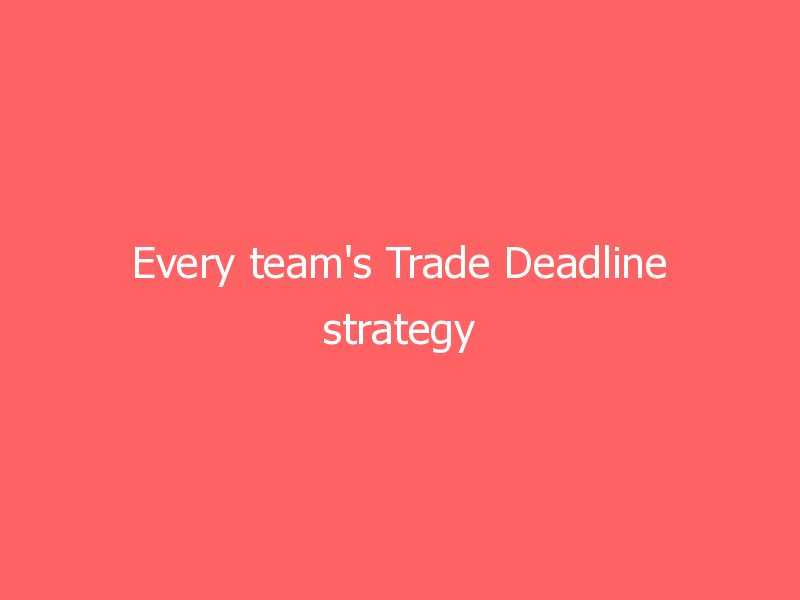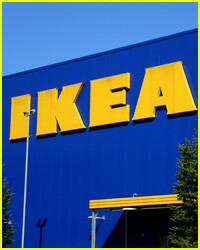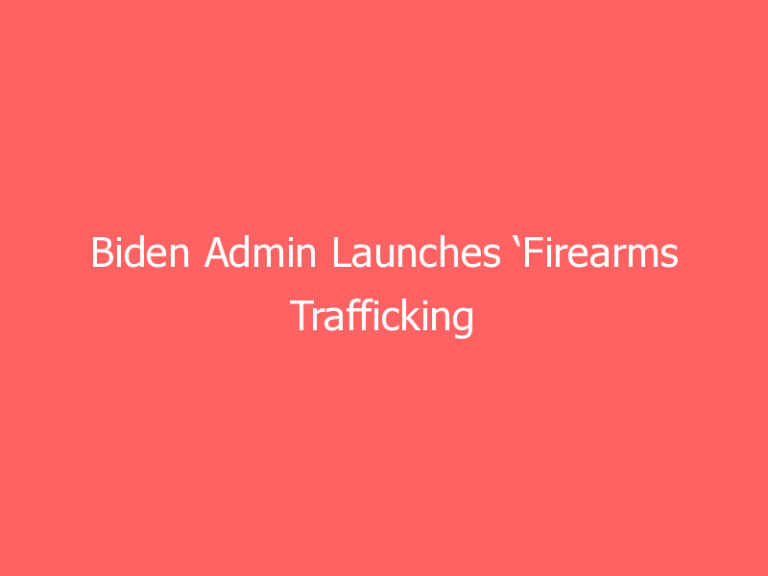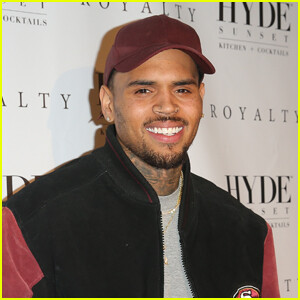2:39 AM UTC
The 2021 Trade Deadline is coming up on July 30. As it approaches, MLB.com gathered its beat reporters to explain what every team is going to be doing over the next two weeks.
Here’s a breakdown of all 30 teams’ Trade Deadline strategies — whether they’re buyers, sellers, both or still undecided.
Teams are listed by division and in alphabetical order.
AMERICAN LEAGUE EAST
BLUE JAYS: Buyer
The Blue Jays have the talent to make a run and still feel like they have a hot streak in them that could catapult them into the AL East division race. For now, an AL Wild Card spot is in sight, and the Blue Jays need to patch up some roster deficiencies to allow this star-studded lineup to truly shine. The bullpen remains a priority along with the rotation, as always, but the Blue Jays aren’t a classic Deadline buyer targeting rentals. With their young core and a great deal of payroll flexibility in 2022 and beyond, the Blue Jays can be creative when it comes to adding contracts or players with multiple years of team control remaining. The Blue Jays’ farm system is still strong, but their ability to take on money might be their greatest asset at the Deadline. — Keegan Matheson
ORIOLES: Seller
The Orioles are again on the hunt for prospects, and they are in possession of their best trade chips of the Mike Elias era to date. The question is how aggressively Elias will shop stars Trey Mancini, John Means and Cedric Mullins, if at all. The O’s would require a big haul in return for any of them, leading many to believe the likeliest scenario is all three remaining in Baltimore through the Deadline. It should be easier to swing a deal for the O’s other trade candidates, notably left-handed relievers Paul Fry and Tanner Scott, and perhaps outfielder Anthony Santander. They dealt veteran relievers Mychal Givens and Miguel Castro at last year’s Deadline, and Fry and Scott are performing better than either and are both under club control through 2022. Don’t expect the Orioles to part with any prospects at the Deadline, as they are paramount to the club’s rebuilding efforts. — Joe Trezza
RAYS: Buyer
You can always anticipate a fair amount of creativity from the Rays, like the mid-May trade that sent starting shortstop Willy Adames to Milwaukee for two relievers and cleared the way for Taylor Walls and Wander Franco, so maybe their version of buying won’t look quite the same as a traditional contender. But Tampa Bay has put itself in a great position, with a crowded big league roster full of talented players — including young contributors like Franco, Walls and Vidal Brujan — and a ton of depth throughout baseball’s top Minor League system. Could the Rays shuffle some established players to create both 1) playing time for the next wave of stars and 2) payroll flexibility for trade acquisitions? Possibly. Either way, expect general manager Erik Neander and Co. to honor what their players are doing by supplementing the core in some way. Maybe they’ll pursue a big bat to further bolster their lineup or a front-line starter to guard against the possibility that ace Tyler Glasnow doesn’t return, or perhaps they’ll find hidden gems like they always seem to this time of year. With the Rays, everything’s always on the table. — Adam Berry
RED SOX: Buyer
Chaim Bloom follows in a recent line of Red Sox executives (Theo Epstein, Dave Dombrowski) with a history of being aggressive at the Deadline. Bloom has extensive history buying and selling. Unlike last year, when he smartly turned Brandon Workman, Heath Hembree, Mitch Moreland, Kevin Pillar and Josh Osich into a batch of prospects, he will be looking to add veterans this time for the stretch run to fortify a team that has exceeded all expectations — perhaps even the ones the Red Sox had for themselves. A left-handed hitter who can play first base is an obvious need. As good as the bullpen has been, they’ve been asked to do a lot, so a reinforcement or two would help the cause. Another starting pitcher would also be helpful, though nobody is going to make a bigger impact than Chris Sale, assuming he stays on track and returns in mid-August. One thing Bloom isn’t going to do is trade top prospects and go into complete sell-out mode to win it all this year. The Red Sox are early in the process of building a foundation they want to be sustainable year after year. — Ian Browne
YANKEES: Buyer
GM Brian Cashman has said that he is in buyer mode heading toward the Trade Deadline, noting that he and assistant GM Michael Fishman have touched base with each of the 29 clubs seeking upgrades to the Yankees’ roster. Their primary areas of focus are an everyday center fielder who can replace the impact that Aaron Hicks was expected to have and a starting pitcher to supplement Gerrit Cole in the rotation while they wait for Luis Severino and Corey Kluber to return. Cashman has left open the possibility that the Yankees could explore a 2016-like partial selloff if they “sink like a rock” in July, but managing general partner Hal Steinbrenner said that isn’t something he has even considered. — Bryan Hoch
AL CENTRAL
INDIANS: Both
The Indians have perfected a buying-by-selling strategy over the last few years, and it wouldn’t be surprising to see the club take the same approach at this year’s Trade Deadline. The team is still in contention and it views itself as a competitor for the 2021 season, which means it will look for ways to improve the current roster by the end of the month. However, Cleveland is always willing to listen to propositions about any of its players and someone like second baseman Cesar Hernandez or some of its high-end middle infield prospects could be used to help bring back young, controllable, MLB-ready (or close to it) talent to make an impact this season and for the foreseeable future. The Indians are always looking to add to their starting pitching depth, but the bigger need is an impact outfield bat. — Mandy Bell
ROYALS: Both
The Royals are too far out of the AL Central race to be true buyers at the Deadline, but they’re not going to be true sellers, either, because they believe they can contend in the coming years and aren’t going to be willing to trade away their top Major League talent for prospects. There’s thought that the Royals could use some veteran players as trade chips, like Carlos Santana and Mike Minor, but Kansas City also places a value on those players to help the younger core that should be the next wave of Major League talent soon. So there’s a balance to strike at the Deadline, and the Royals are going to examine the deals that will help them make the turn toward contending in the next few years. — Anne Rogers
TIGERS: Seller
It’s not exactly a fire sale in Detroit, where injuries to Spencer Turnbull, Matthew Boyd and Michael Fulmer have erased an opportunity to leverage the Tigers’ pitching surplus into potential help on the offensive side. But with Jonathan Schoop enjoying what should’ve been an All-Star season ahead of free agency, there’s still a chance for GM Al Avila to explore the market. The Tigers have found some undervalued prospects from trading pending free agents the last couple years, including Zack Short for Cameron Maybin and Joey Wentz for Shane Greene. Both Avila and manager A.J. Hinch have said recently the Tigers won’t make deals unless they make the team better. With the team on the upswing, Detroit wants players who can help the club next year or shortly after, not five years down the road. — Jason Beck
TWINS: Seller
There’s a balance to be had here, because the Twins could presumably have the young lineup pieces to compete in 2022 — but moving their most meaningful trade chips at this Deadline would make it much more difficult for them to make a push. It’s probably a safe bet that the Twins will find suitors for designated hitter Nelson Cruz and reliever Hansel Robles, both of whom are set to be free agents this offseason, but Cruz’s market will be limited due to his defensive restrictions. They’ll do what they can with Michael Pineda, another impending free agent — but one coming off injury. That means right-hander Jose Berrios could be the most coveted piece on the market for contenders, especially in a market largely devoid of starting pitchers. Berrios gets added value from the fact that he has a year of team control remaining, but that’s exactly why the Twins might want to hold onto him — especially if they believe this emerging young core of Alex Kirilloff, Trevor Larnach and Ryan Jeffers can make for a contending lineup next season. And can they find any suitor willing to take on the remaining two years of Josh Donaldson’s contract? — Do-Hyoung Park
WHITE SOX: Buyer
The biggest moves made by the White Sox could come from their key players getting healthy and coming back. Left fielder Eloy Jimenez (ruptured left pectoral tendon) has started a Minor League injury rehab assignment and center fielder Luis Robert (right hip flexor tear) is not too far behind. But the White Sox have an opening at second base, with Nick Madrigal out for the season due to a right hamstring tear, and will be as proactive as possible to give this team the best chance to pursue its World Series championship goal. Most of the young White Sox players considered as enticing trade possibilities currently are making important contributions to the big league team, so the White Sox will have to walk that line of trying to add for the title at hand while not disrupting the core for its competitive window. — Scott Merkin
AL WEST
ANGELS: Both
Even with superstar Mike Trout out since mid-May, the Angels have been playing better baseball recently and have been buoyed by two-way star Shohei Ohtani. If they continue their recent run, they could be buyers at the Trade Deadline and are looking for starting pitching help. But if they fall out of the race, they could decide to sell and closer Raisel Iglesias will be an attractive relief option for contending clubs. It’s still too early to know exactly what they’ll do, especially with Trout and fellow stars Anthony Rendon and Justin Upton due to return shortly after the All-Star break. — Rhett Bollinger
ASTROS: Buyer
The Astros had the highest-scoring offense in the Major Leagues in the first half and a rotation that was so deep they were able to move Cristian Javier to the bullpen and withstand a pair of injuries to Jose Urquidy. Houston’s glaring weakness is in the bullpen, where All-Star closer Ryan Pressly has been their only reliable reliever. At one point, the Astros had seven relievers on the injured list, but Bryan Abreu and Joe Smith have recently returned and Josh James and Austin Pruitt should be back before the end of the month. Still, a proven veteran reliever would set Houston up nicely for what figures to be another long postseason run. — Brian McTaggart
ATHLETICS: Buyer
The A’s went into the All-Star break struggling to put together sustained rallies on offense through the early part of July, but the club is hopeful to get more steady run production with the return of leadoff table-setter Mark Canha from injury. Where the A’s really could use a boost is in the bullpen. As currently constructed, Lou Trivino and Yusmeiro Petit are their only two late-inning relievers who have proven to be reliable for the majority of the season. Oakland has added a reliever at the Deadline in two of the past three seasons, so expect them to be aggressive in doing so again this time around. The offense could also use an extra power bat, with Nelson Cruz immediately coming to mind as an attractive target. — Martin Gallegos
MARINERS: Both
The Mariners desperately need starting-pitching depth after Justus Sheffield joined Justin Dunn on the IL and is expected to be sidelined for an extended period. Even if Hector Santiago doesn’t return until near the Deadline, he’s still not stretched out enough to give the Mariners the innings they need. And the bullpen-game strategy they’ve deployed as a regular rotation spot earlier this season isn’t sustainable — and they’ve gone 1-7 in those games. That’s all to say that Seattle needs external help, albeit among the lower-tiered ranks. Don’t expect GM Jerry Dipoto to make a splash for Kyle Gibson. Separately, it seems increasingly likely that the Mariners will shop Mitch Haniger all the way to the Deadline. He is 30 years old, is on pace for more than 35 homers, has an affordable contract and his value will never be higher. — Daniel Kramer
RANGERS: Seller
The Rangers are currently 20 games under .500 and are almost definitely going to be sellers at the Deadline. They’ve been competitive in most games and though this season is about growth for the future, some faces won’t be included in that. The club has three pieces that could be dealt, though it’s unclear if all will ultimately end up on the trade block. The two pitchers — ace Kyle Gibson and closer Ian Kennedy — are most likely. Gibson, at 33 years old, is in the best year of his career with a 2.29 ERA, 1.07 WHIP and 6-1 record in 17 starts, but out of place on a young Rangers’ roster. There are many teams in need of starting pitching. Kennedy, at 36 years old, is resurgent this season, with a 2.67 ERA and 16 saves in 16 tries. Slugger Joey Gallo is the wild card. His name has been floated at the Deadline for the last few seasons, but the Rangers would need the right package to deal him. Time is running out to trade or extend the Gold Glove right fielder, so at the Deadline or in the winter is when a choice will likely be made. — Kennedi Landry
NATIONAL LEAGUE EAST
BRAVES: Both
With Ronald Acuna Jr., there was reason to question whether the Braves would be best to sell. Now that the young superstar has been lost for the season with a torn ACL, there’s certainly less reason to think Atlanta should buy. But Atlanta has added Joc Pederson and Stephen Vogt in trades since the break in an apparent attempt to make a run. If the club doesn’t move close to the winning record that has eluded it all year, then it might be time to begin seeing what kind of return could be had by dealing Charlie Morton, Drew Smyly, Will Smith, Chris Martin and Shane Greene. It seems doubtful the club would trade Freddie Freeman. But there will certainly be speculation about the first baseman’s future over the next couple weeks and into his expected entry into the free agent market. — Mark Bowman
MARLINS: Both
Last week, GM Kim Ng said any deal would take into consideration both the short-term and long-term benefits of the club. That’s exactly what happened on June 29, when Miami sent reliever Adam Cimber and outfielder Corey Dickerson to the Blue Jays. It freed up left field for prospect Jesus Sanchez, and money — perhaps to extend Starling Marte, who can become a free agent at season’s end. The same thing happened in 2019, when the Marlins traded Zac Gallen for Jazz Chisholm Jr. Though the Marlins are in last place in the wide-open NL East, the front office publicly has stated it believes a run is possible because of the starting staff. But time is running out. A safe bet would be the departure of veterans with expiring contracts. — Christina De Nicola
METS: Buyer
While it’s plausible the Mets could upgrade at third base or in the bullpen, they’re most likely to add to their rotation — a group that went the entire first half of the season without Carlos Carrasco or Noah Syndergaard. Front-office officials have discussed their hesitancy to part with significant pieces for the future at this year’s Deadline, as they look to build a sustainable winner. But the Mets also know they have an opportunity before them, given their first-place standing at the All-Star break. They would probably be willing to part with prospects Ronny Mauricio, Mark Vientos or others if it meant upgrading their rotation in a meaningful way prior to the Deadline. — Anthony DiComo
NATIONALS: Buyer
As the Nationals vie for a playoff spot in the closely matched NL East, adding pitching or outfield depth would help their roster that has been hampered by injuries. Yes, Max Scherzer’s name will be in the mix as teams seek a high-caliber starting pitcher in the final year of his contract. But Scherzer, who was named the NL starting pitcher in the All-Star Game this week, is the anchor to the Nationals’ starting rotation. While the Nats wait for the return of Stephen Strasburg and look for deeper outings from Jon Lester, adding another arm would help spell the workload of the taxed bullpen. Depending on how quickly left fielder Kyle Schwarber, who is recovering from a significant right hamstring strain, can return, another outfielder could help as well. — Jessica Camerato
PHILLIES: Undecided
The Phillies can make a difficult decision easy for the front office. If they play well coming out of the All-Star break — they play 12 of 14 games before the Deadline against teams with losing records — they might convince Dave Dombrowski to look for legitimate bullpen help. But if the team stumbles and falls further behind the Mets in the NL East, Dombrowski could look to sell some players who will be free agents after the season, including Andrew McCutchen and Hector Neris, or others like Rhys Hoskins and Jean Segura. The third option, if the Phillies play like they have — around .500 for much of the season — is making a modest upgrade to the bullpen. One thing that hurts the Phillies is that they have one of the weaker farm systems in baseball, so they cannot afford to mortgage the future by trading their top talent, especially for a team that is clearly more than one piece away from winning a World Series. — Todd Zolecki
NL CENTRAL
BREWERS: Buyer
The Brewers have been buyers for weeks now, having jumped the market to fill a hole at shortstop by trading with the Rays for Willy Adames and reliever Trevor Richards on May 21, then flipping Richards to the Blue Jays to fill a hole at first base with Rowdy Tellez on July 6, and making minor trades for players like veteran reliever Hunter Strickland along the way. Adames has been the Brewers’ catalyst, fueling a hot streak that pushed Milwaukee four games up on the rest of the National League Central field at the All-Star break. But Brewers president of baseball operations David Stearns may want to do more at the Trade Deadline, either to fortify a bullpen that took two significant hits when J.P. Feyereisen and Drew Rasmussen went to Tampa Bay in the Adames deal, or perhaps left-handed fortification at third base, where right-handed hitting Luis Urias has seen the bulk of playing time since Travis Shaw went down with a left shoulder injury. The smart money is on a bullpen add; Stearns traded for relievers in 2017 (Anthony Swarzak and Jeremy Jeffress), 2018 (Joakim Soria) and 2019 (Drew Pomeranz). — Adam McCalvy
CARDINALS: Potential buyer
The Cardinals, 8 1/2 games back of the NL Central-leading Brewers, find themselves at a fascinating inflection point. They played some anemic baseball in June that saw them nosedive from first all the way to fourth place in the division. They picked it up as the first half drew to a close to tie the Cubs in third, but is it enough to warrant any big-time additions? Jack Flaherty and Miles Mikolas are expected to return at some points in August, but St. Louis could add a starting pitcher to its rotation that currently has five on the IL. Truthfully, if they decide to be sellers, they don’t have a bevy of trade chips. But if they deem it’s not worth trading part of the farm for the stretch run, you may see St. Louis attempt to sell from the fringes of its roster, a la Kwang Hyun Kim or Andrew Miller. — Zach Silver
CUBS: Seller
Back on June 24, the Cubs finished off the Dodgers with a combined no-hitter — the 17th no-no in the franchise’s long, storied history — and were riding high atop the NL Central. The next 11 games altered the course of Chicago’s season and potentially changed the landscape of the next few years in the process. The Cubs lost 11 games in a row and spiraled down the division standings as the Brewers got red hot at the same time. In the wake of that prolonged skid, president of baseball operations Jed Hoyer made it clear that the tone of his calls and texts with other teams had shifted. Hoyer does not want to call the next phase in the team’s timeline a “rebuild,” but his focus is on creating the next Cubs core. Closer Craig Kimbrel and Kris Bryant top Chicago’s list of trade chips, but stars Javier Baez and Anthony Rizzo (free agents this winter, along with Bryant) are not untouchable. The Cubs’ roster has a dozen-plus players who could hit the open market this coming offseason, creating a wide range of scenarios for this Deadline. — Jordan Bastian
PIRATES: Seller
There are a few players who seem more likely than not to be dealt in July, but in reality, Ben Cherington will listen to almost any offer. Among the top options the Pirates have to score a return of prospects are MLB hits leader Adam Frazier, left-handed starter Tyler Anderson, closer Richard Rodriguez, left-handed reliever Chasen Shreve and — if anyone is willing to risk it — right fielder Gregory Polanco, who has hit the ball hard but very infrequently. Cherington is also not afraid to deal in bulk vs. for one or two well-ranked prospects; he dealt Joe Musgrove to the Padres for five players, only one of whom ranked in the top 20 of the club’s Top 30 Prospects list per MLB Pipeline at the time. — Jake Crouse
REDS: Buyer
But probably a limited buyer. The Reds aren’t likely to empty the farm system for a veteran reliever, but they do need bullpen help and could use an upgrade at shortstop. They climbed their way back into contention while winning nine of 11 games and 13 out of 19 ahead of the All-Star break before stumbling a bit over the weekend against the Brewers. Regaining their momentum could make ownership more willing to add to the payroll. But the Reds also feel like the returns of injured relievers like Michael Lorenzen and Lucas Sims and, eventually, center fielder Nick Senzel, will be boosts that might reduce the need to make deals. “If there is something we can do to supplement this team and help this team continue to win ballgames, we’re definitely open to it,” Reds GM Nick Krall said on Sunday. — Mark Sheldon
NL WEST
D-BACKS: Seller
Things looked a lot different for the D-backs when they were 15-13 on May 2. Since then they’ve had losing streaks of 13 and 17 games and a road losing streak that reached an MLB-record 24 games. The season is now about continuing to stock their farm system and getting a feel for where some of their young players fit going forward. With that in mind, look for the D-backs to listen to offers on anyone outside of right-hander Zac Gallen, Carson Kelly and Ketel Marte, the latter two of which are injured. Veteran free agents like Eduardo Escobar and Asdrubal Cabrera are the most likely to go. Whether the team deals outfielder David Peralta or shortstop Nick Ahmed remains to be seen, but assistant GM Amiel Sawdaye recently said that a total revamping of the team would be difficult to pull off at the Trade Deadline and so some moves may have to take place this winter. — Steve Gilbert
DODGERS: Buyer
The Dodgers were always going to be buyers at the Deadline as they try to repeat as World Series champions, but the last couple of weeks have certainly given L.A. motivation to make a move before the Deadline. There’s still uncertainty around Trevor Bauer as MLB continues its investigation on sexual assault claims, and Clayton Kershaw is sidelined with a left forearm injury. That leaves the Dodgers with just three healthy and active starting pitchers — Walker Buehler, Julio Urias and Tony Gonsolin. David Price could slot in as another starter for L.A., but the left-hander is still building up as a starter and has been in the bullpen all season. Expect president of baseball operations Andrew Friedman to be aggressive in the trade market. — Juan Toribio
GIANTS: Buyer
Not many observers expected the Giants to emerge as legitimate contenders this year, but they’ve managed to exceed expectations and rise to the top of the toughest division in baseball. President of baseball operations Farhan Zaidi is expected to seek out additional pitching depth, particularly starting options, at the Trade Deadline, but the Giants have worked hard to rebuild their farm system, so they’ll be reluctant to part with top prospects in any potential deals. They could prefer to target complementary pieces that could bolster their present depth without mortgaging their future. — Maria Guardado
PADRES: Buyer
Last summer marked A.J. Preller’s first Trade Deadline as a buyer, and he splurged. The Padres general manager pulled off six trades in the final three days before the Deadline. Considering Preller’s freewheeling nature, we probably should’ve seen it coming. There’s no reason to expect anything different this time around. The Padres farm system isn’t quite as deep anymore, but it boasts a handful of valuable trade pieces, and the Padres could use a few upgrades — whether in the rotation, the bullpen or on their bench. — AJ Cassavell
ROCKIES: Seller
The Rockies are a seller to watch closely. No one expects standout shortstop Trevor Story to finish the month in Purple Pinstripes, although interim GM Bill Schmidt has said if the right offer doesn’t come then the Rockies can always take the compensatory pick. The question is how much will the Rockies get? The Rockies’ current roster has holes in terms of power, left-handed hitting, power and top-level catching. But can they get proven help in one of those areas, or will their take be limited to players just emerging as Major Leaguers. An underrated but important key will be smaller deals — righty relievers Daniel Bard and Mychal Givens are trade chips, and some depth players might be moved — that could help Minor League system depth. Expect the Rockies to seek gems who do not have to be protected next winter on the 40-man Major League roster. — Thomas Harding
Originally found on Read More


![[VIDEO] Meghan McCain Just Can’t Stop Blasting Biden Lately…](https://manateeherald.com/wp-content/uploads/2021/06/300-4IokkF.jpeg)




